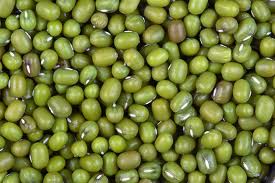Daikon (Raphanus sativus longipinnatus) is a mild white radish shaped like a large carrot. The name “daikon” comes from the Japanese words dai, meaning “big” and kon, meaning “root”. Growing to a length of 8 to 14 inches (20 to 35 cm) and a width of 2 to 4 inches (5 to 10 cm), it certainly lives up to its name. Variant varieties may be cylindrical or even spherical. Almost all types are white, though some are shades of yellow, green, pink, or black.
The daikon radish is popular in the cuisines of Japan, China, Korea, Vietnam, and India. It is known by the names of Japanese or Chinese radish, winter radish, icicle radish, labanos, lobak, and rabu, among others. The daikon is believed to have originated in the Mediterranean region, before being transplanted to east Asia sometime prior to 500 B.C.
Health Benefits of Daikon
Raw daikon is used throughout Japan to complement the taste of oily or raw foods and, more importantly, to aid in their digestion. Laboratory analysis has shown that the juice of raw daikon is abundant in digestive enzymes similar to those found in the human digestive tract. These enzymes – diastase, amylase, and esterase – help transform complex carbohydrates, fats, and proteins into their readily assimilable components. Traditional Japanese restaurants serve grated daikon (daikon oroshi) in tempura dip to help digest oils, or shredded daikon with raw fish to help digest the protein. Grated daikon is a wonderful aid to people with a weak digestive system. It is important, however, to use grated daikon immediately. In just thirty minutes nearly 50 percent of its enzymes are lost.
The enzymatic action of daikon juice has gained the attention of scientists in Japan. At Tokyo’s College of Pharmacy, researchers have discovered that daikon juice actually inhibits the formation of dangerous chemicals in the body. Nitrosamines, a type of carcinogen, can form in the stomach from chemicals present in both natural and processed foods. Daikon juice contains substances identified as “phenolic compounds” that can block this potentially dangerous reaction. Thus, a diet including raw daikon may reduce the risk of cancer.
Daikon has also been shown to be effective as a diuretic and decongestant. As a diuretic, raw daikon promotes the discharge of excess water by the kidneys. The result is increased urination and gradual reduction of the swelling condition known as edema. As a decongestant, the enzymes in daikon juice seem to help dissolve mucus and phlegm in the respiratory system and facilitate their discharge from the body.
Daikon is high in vitamin C and folacin. Like its relatives broccoli, cabbage and kale, daikon is a cruciferous vegetable that offers cancer-protecting potential.
A few drops of soy sauce and a tablespoon of grated daikon is a macrobiotic treatment for helping the body discharge old animal protein and fats. Cooking daikon with a kombu broth is said to help the body eliminate excess dairy products. A tea brewed from daikon, shiitake and kombu has been used as a folk remedy to reduce fever.

